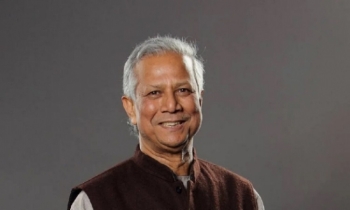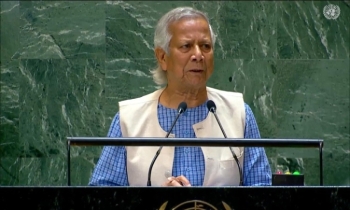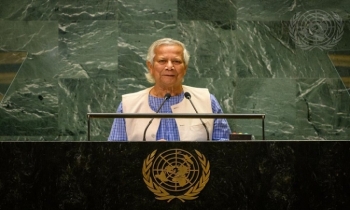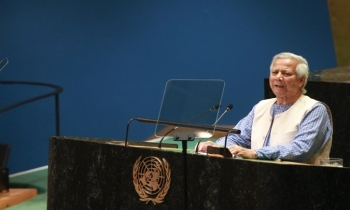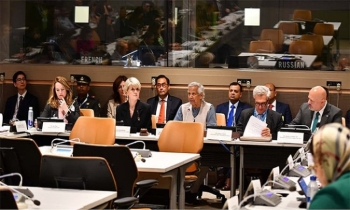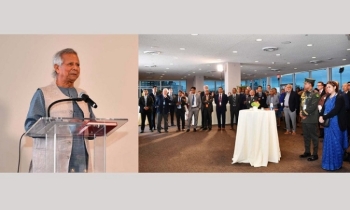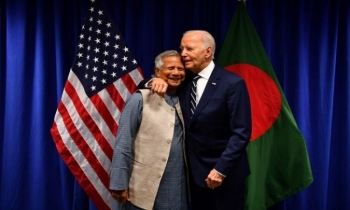Local govt institutions can play key role to tackle Covid: Experts
BI Report || BusinessInsider
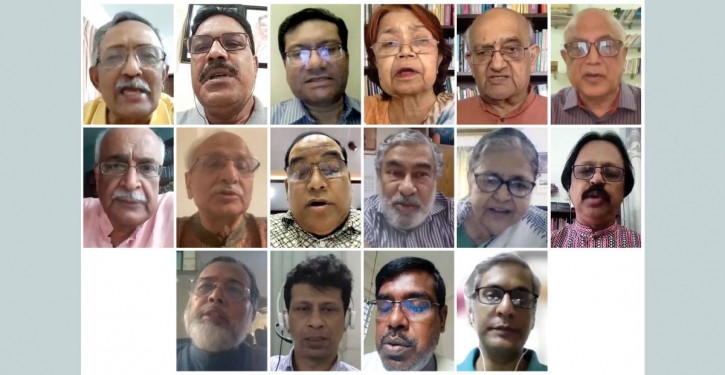
Participants of a webinar on “Civil Society and community-based Initiative to address the pandemic” organised by the Citizen’s Platform for SDGs, Bangladesh and The Hunger Project are seen on a screen on Sunday. Photo: Collected
The local government institutions need to be involved in planning, coordination and monitoring at the local level to deal with rising Covid-19 cases and deaths.
The observation was made at a webinar on “Civil Society and community-based Initiative to address the pandemic” organised by the Citizen’s Platform for SDGs, Bangladesh and The Hunger Project on Sunday, according to a statement.
The second wave of the Covid-19 pandemic has hit Bangladesh since March. The country has been facing a surge of Covid cases due to the delta variant, where the most affected people were from rural areas.
The effective containment of which would require breaking the chain of infection and that can be brokenby preventive measures, such as adherence to health regulations, including behaviour change of the people; isolation of the infected patients; putting in quarantine those who are suspected of being infected; and increasing the vaccination coverage, said the platform.
“There is a lack of awareness campaigns and community involvement. In this situation, it is vital to abide by health guidelines provided by the World Health Organization (WHO),” it said.
Experts suggested that various efforts at the national and local level and synergy between them is required.
Dr Badiul Alam Majumnder, Country Director, The Hunger Project, made a keynote presentation at the dialogue and said Coronavirus Resilient Villages’ (CRV) initiative, implemented last year in about 1200 villages across Bangladesh.
This model is designed to pursue the WHO technical guideline of Risk Communication and Community Engagement with the purpose to prevent the spread of the virus, he said.
This volunteer-driven, community-led initiative involving the community’s gatekeepers has already produced promising results and is considered by experts as the most appropriate approach for containing the spread of COVID-19 infection in Bangladesh, according to the keynote paper.
Dr Debapriya Bhattacharya, Convenor, Citizen’s Platform for SDGs, Bangladesh and Distinguished Fellow, Centre for Policy Dialogue (CPD) stated that to tackle Covid-19 there is no alternative to civil society and community based initiatives.
He also stated that there is a lack of coordination between efforts by the government and non-government initiatives.
Dr Bhattacharya highlighted that the government provides no specific instructions for a collective effort to tackle the pandemic. He suggested outlining policies in this regard.
Member of Parliamentary Standing Committee on Ministry of Education Lawmaker Fazle Hossain Badsha said it will be difficult to tackle the pandemic without the help of civil society and community-based initiative and also acknowledges the lack of guidelines to address this issue.
Member of Standing Committee on Ministry of Industries lawmaker Mohammad Shahiduzzaman said still now there is misconception about Covid-19 among the common people. “Although there are initiatives taken by the public and private sectors, still further importance has to be given to increase awareness,” he said.
CPD Chairman Professor Rehman Sobhan said there should be a collective effort with the civil society and the public organisation at the Upazila level and an example needs to be set.
CPD Distinguished Fellow Professor Rounaq Jahan, and Policy Advisor at a2i Programme Anir Chowdhury attended the event, among others.


